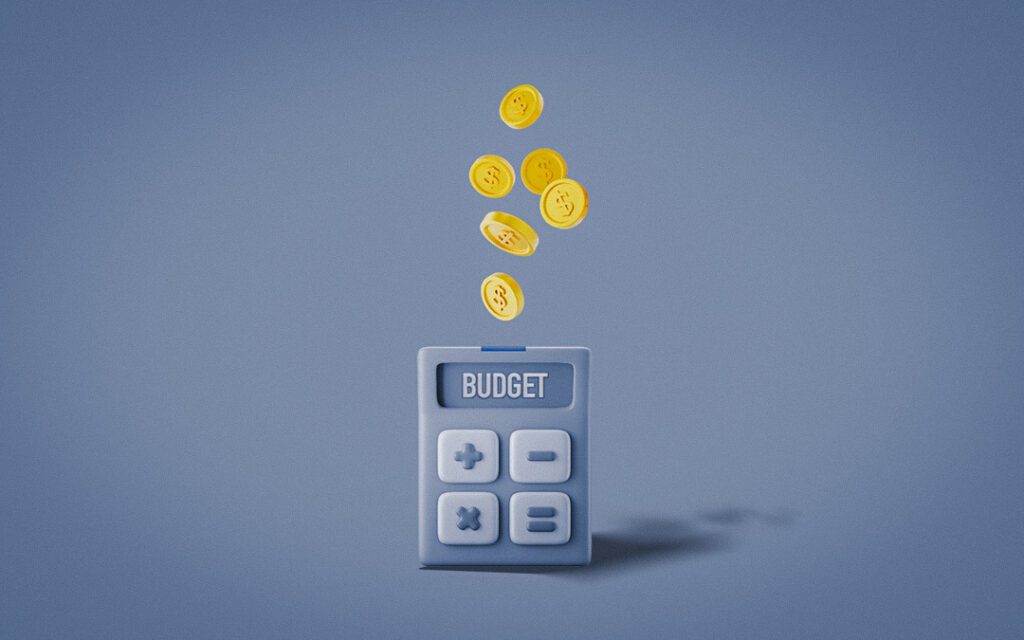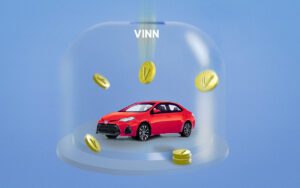Deciding Your Car Budget
When starting the car shopping process, your budget is the most important factor to consider. Whether you are leasing, financing, or paying cash– you will need to decide on a price point that will work for your financial situation. If you choose to lease or finance, it is best to base your budget on monthly payment amounts. In a previous article, we broke down the advantages and disadvantages of financing versus leasing. This article will explore the 20/4/10 rule and how this formula will help you determine what monthly car payments you can afford with your income. Let us help you decide your car budget and find out how much you should spend on a car. 💰
20/4/10 Rule: How Much Should Your Monthly Car Payments Be?
Financial budgeting is a bit of a touchy subject. Since we can’t stop you from spending money on your daily Starbucks or online shopping, we can help you determine how much you should spend on your car compared to your salary. Understanding your budget for a vehicle will allow you to be confident in your decision and prepare you for the dealership.
If you are unsure how much you should spend on a car, we recommend using the 20/4/10 rule. 20/4/10 is a simple rule of thumb that helps you find a vehicle that will fit your budget. According to the formula, you should aim for a 20% down payment with a car loan of four years or less and spend no more than 10% of your monthly income on other car-related expenses. The 10% for car-related expenses include loan payment, gas, car insurance, and maintenance.
For example, let’s say you make $65,000/year and want to finance a car with a purchase price of $30,000. With the 20/4/10 rule, your down payment would be $6,000, and your car-related monthly expenses would need to be $541. So in this scenario, your budget for car payments, gas, insurance, and maintenance would be $541/month.
How to Apply the 20/4/10 Rule to Car Leasing
20/4/10 is a simple rule to follow when considering financing a car. However, you may consider other car purchasing options, such as leasing or paying cash. You can apply the 20/4/10 rule to the leasing scenario in two ways:
- You can put down a 20% down payment, have a four-year lease contract, and have your total payments equal 10% of your monthly income.
- Alternatively, you do not have to have a down payment when you lease a vehicle. Therefore, when considering leasing a new car with no down payment, you can still use the 10% rule. You could have all car-related expenses, and your car lease payments equal 10% of your monthly income.
What’s Better for My Budget: Lease, Finance, or Cash?
One of the steps to determine your car payments and your overall budget is to decide whether you will lease, finance, or pay cash. All three of these car purchasing options will have different monthly payment amounts.
Lease
When you lease a vehicle, you enter into a contract with a dealership to make monthly payments to drive the vehicle for a specified period. Usually, lease contracts are for two to four years. You can make a down payment in the leasing scenario, which lowers your monthly payments. However, you do not have to have a down payment to lease a car. Compared to financing, leasing a new vehicle will usually have lower monthly payments.
VINN Tip: We recommend asking the dealership to provide you with two lease quotes, one with a down payment and the other without one. Another thing to remember is that if the vehicle is stolen or totalled, you will most likely not get your down payment back.
Learn more about car leasing here.
Finance
When you finance a vehicle, you make monthly payments towards owning the car. Your monthly car payment includes your interest payment and principal payment. The amount will depend on the purchase price of the car, your down payment, and the terms of your loan. Financing a new car usually results in higher monthly payments than leasing.
Learn more about vehicle financing here.
Cash
Paying cash for a car offers some advantages, such as no monthly payments or interest charges. However, buying a car in cash will mean that you are locking up a large amount of money that could be used or invested elsewhere. Therefore, paying cash for a car is not always the best option, especially when you could use that money for your savings or investments.
What is the Most Budget-Friendly Option for Car Buying?
All three of these options offer different advantages and disadvantages. Overall, leasing and financing are better options than buying with cash, and here’s why:
- With leasing, you do not have to lock up any money in a vehicle.
- You will have lower monthly payments for a new vehicle.
- The vehicle’s future depreciation does not affect you.
- You will have a factory warranty that will cover most major mechanical or electrical repairs.
Another factor to consider with car leasing is the significant tax advantages for business owners. You can deduct the business-related amount of your lease payments, up to $800 per month and HST.
In comparison, some consider financing a better investment because current interest rates are low, and you can eventually pay off your loan and have no car payments.
The option that you choose will depend on your situation. For example, leasing is the more budget-friendly option if you own a business. In comparison, financing is also a great option, especially if you want to put down a down payment or if you want to build your credit.
Other Ways to Save Money When Purchasing or Leasing a New Car
Financing Tips
You have two options for lending when you finance a car: direct lending and dealership financing. It is best to consider both possibilities when purchasing a vehicle because one option could have lower monthly payments.
Borrowing money in the form of a loan from your bank or credit union.
- Depending on your relationship with your bank and credit rating, you can receive more favourable terms and lower interest rates with direct lending.
- You will also know the terms of your loan before car shopping, which can help you make a more informed purchase decision.
- Also, taking out a loan with your bank will allow you to establish a greater relationship with your bank and making your monthly payments will help build your credit.
Receiving financing through a dealership.
- Sometimes dealerships will have financing promotions to offer reduced interest rates. However, you will need a solid credit score to qualify for these promotions.
- Keep in mind that dealerships will often sell your contract to a bank, which can cause your payments and interest rates to be higher. You are going right to your bank and cutting out the middleman with direct lending.
- If direct lending is not an option for you, you do not need to shop for financing at multiple dealerships. VINN will find the best vehicle for your budget, and a VINN dealer partner will help you get the best approval based on your credit.
VINN Tip: Car shop at the end of the month. Once dealerships near month-end, they are eager to meet or beat sales targets. Therefore, dealerships can sometimes offer price adjustments or extra accessories.
Electric Vehicle and Plug-In Hybrid Incentives/Rebates
Another great way to save money on a new car is to purchase a plug-in hybrid (PHEV) or an all-electric vehicle (EV). Not only do EVs require less servicing and maintenance, but there are also plenty of provincial and federal rebate programs available for the purchase or lease of EVs and PHEVs.
You can receive up to $5,000 in electric incentives through the federal government’s iZEV program. Provincial EV rebates amounts vary by province. Check out our article on EV Incentives Across Canada to find out more.
Need help in your car shopping journey? Check out our articles on the Best Electric SUVs, Electric Trucks, 7-Seater SUVs, and Best Vehicles for New Drivers.
At VINN, we work directly with you to guide you through the process of finding a new car. Our vehicle experts will work with you to ensure that you get the best value for the right car, and you can also browse our inventory.
Happy driving! 🚘 Tell us about your favourite vehicles or fun car facts by tagging us on Instagram @vinncanada or Twitter @vinnauto.







